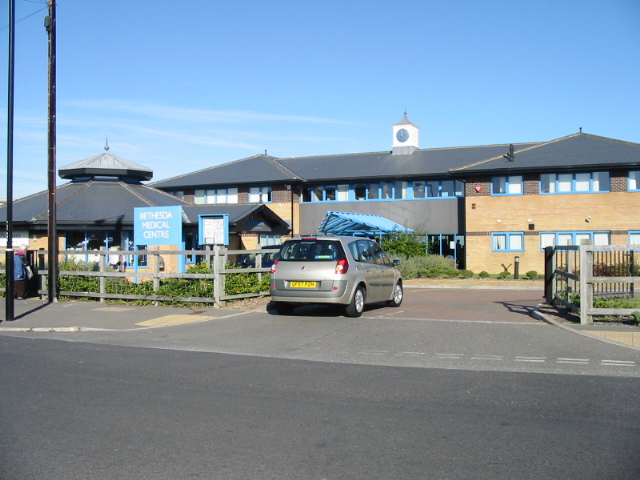Patients complained at surgery of doctor cleared over imposing religion
Posted: Thu, 19th Dec 2019
Multiple patients complained about religion being "pushed upon them" at a surgery where a doctor was recently told he would face no action for doing so, it has emerged.
Last month the General Medical Council (GMC) told Dr Richard Scott, a GP from Margate in Kent, he would not be penalised after the National Secular Society raised concerns about his conduct.
The GMC dismissed the case on the grounds that there was insufficient evidence to take it further.
Now NSS research has uncovered minutes from a meeting of a patients' group at the Bethesda Medical Centre in January which reveal that patients have complained about religion being imposed on them.
During the meeting the centre's practice manager Rachael Cousins was asked whether religious representatives could visit patients.
In response, according to the minutes, "Rachael explained that unfortunately, too many complaints are received from patients saying that they do not with (sic) Christianity or any other religion to be pushed upon them when they attend the surgery."
The NSS is now urging the GMC to reconsider its decision not to investigate Dr Scott in light of the fresh evidence.
Case against Dr Scott
Earlier this year the NSS asked the GMC to explain how it planned to ensure Dr Scott met the standards required of a doctor, and to protect patients' right to access health care without evangelism.
The NSS raised the case after being contacted by a member of the public who was concerned about an acquaintance being treated at Bethesda. The NSS was told the acquaintance was "highly vulnerable" and was being made to feel uncomfortable because Dr Scott was imposing his religious views during appointments.
The NSS also raised remarks from a BBC Radio 4 interview which suggested Scott was ignoring GMC ethical guidelines.
Dr Scott appears to defy regulator's authority
In recent press reports Dr Scott has dismissed the recent case against him as "vexatious".
But recent public statements he has made since the GMC's latest decision suggest he is openly defying the authority of the regulator:
- He told BBC Radio Kent that he would continue to initiate conversations about his personal beliefs. This was despite guidance which says doctors "may talk about your own personal beliefs only if a patient asks you directly about them, or indicates they would welcome such a discussion".
- In the same interview he said he had not changed his "approach" since 2012, when the GMC gave him a warning after he distressed a patient through "insensitive" expression of his religious beliefs. His actions in 2012 were deemed a "significant departure" from the principles in the GMC's core guidance for all doctors.
- When asked whether he was prepared to practice in a way that risked his registration during the radio interview, he replied: "Absolutely."
- On the radio he also said: "As a Christian doctor you have to ask yourself, who's your ultimate boss? And it's not the GMC. It's Jesus Christ."
In press coverage of the case Dr Scott suggested the complainant simply "didn't like what [he] said on Radio 4". But the NSS received the complaint before Scott's Radio 4 appearance.
NSS chief executive Stephen Evans commented: "The evidence suggests that many patients do not welcome their GP's religion being imposed on them when they attend the surgery. This is why the GMC's ethical guidance prohibits it.
"Dr Scott appears either blind or indifferent to the way his actions may harm patients and undermine the doctor-patient relationship. Being an evangelical Christian does not exempt you from the behaviours and standards expected of all doctors working in the UK."
See also: Doctor don't preach, published in The Mirror (19 December 2019).
Image: Bethesda Medical Centre on Palm Bay Avenue, © Nick Smith [CC BY-SA 2.0], via Geograph.
While you're here
Our news and opinion content is an important part of our campaigns work. Many articles involve a lot of research by our campaigns team. If you value this output, please consider supporting us today.








